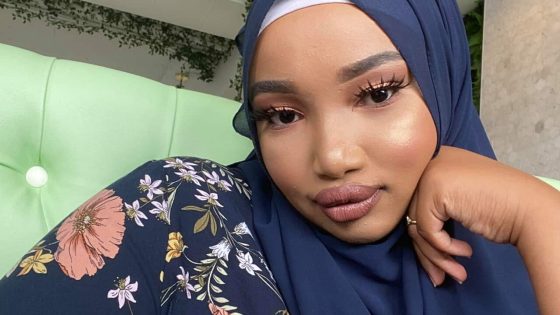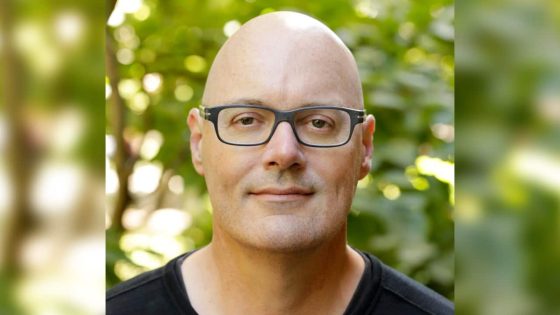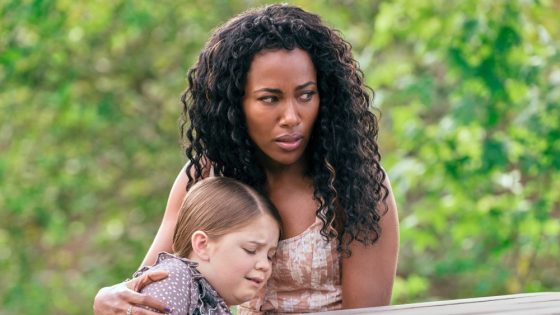Watch Insight’s episode Keeping The Faith on
I started wearing the hijab when I was seven. Honestly, before I really knew what it meant. I just wanted to be like my mum.
This is not exactly typical, lots of Muslim girls I know started wearing the hijab in their late teens, early twenties.
Some put it on sometimes, and some never at all. It’s a complicated relationship, and so much more than a piece of cloth covering your head.
When you wear a hijab, it can feel like you stop being a person to the world and turn into political symbol.
That’s certainly been my experience. I was born in Australia, but I have lost count of the number of comments people have freely offered about my appearance.
What happens when women compliment my hair
A lot of girls I know wear the hijab to make their families happy. Me wearing mine makes my family happy, but they never pressured me to wear it. The mainstream narrative really pushes the idea that young Muslim girls have the hijab tied around them like a chain, but I honestly feel the most freedom wearing mine.
I remember once in high school, a girl asked me if I ‘was bald under there’, with a concerned look in her eyes.
It was funny then, and all these years later it is still funny. But it does stick out to me that people are always concerned.
I recently started going to a gym class, and because it’s a women-only class I often wear my hair out. Never have I received so many compliments, and this theme of positive validation whenever people see me without my hijab is not lost on me.
I hear things like “Your hair is so lovely!”, “It’s really a shame you have to hide hair…” and “What if you just take it off?” or “You must be really hot in that thing, do you sleep in it?” (The answer is decidedly no, by the way. I do not own a satin pillowcase for no reason!)
So many women in my life have told me how much better I would look without my hijab, never once wondering how that feels to hear.
I truly believe they think of it as a compliment, or some show of support for the oppression they read into me.
Women can have bodily autonomy so long as they are taking clothes off, and not putting them on, right?
How movies help me see the way I’m represented in the world
I use them to understand the people around me, and the world. The conversation around positive representation is growing ever louder in our culture, and while we are taking many steps in the right direction, some negative archetypes remain – Muslim women for example.
It became a running joke between my friends and I how soon a hijabi in mainstream fiction TV would take off her hijab and be ‘liberated’.
So often, the hijab is treated like an obstacle between a woman and love, acceptance, and beauty.
This could not be further from the truth. However, I would be lying if I said I have not internalised the messaging and felt like taking off my hijab would be the easier option in many ways.
Wearing the hijab physically identifies you as a Muslim, and during times of global strife, it’s like a bat signal for xenophobia.
Amina’s love of films helps her see how other hijabis are being represented in mainstream media. Source: SBS
Growing up as the token Muslim girl
Throughout my life I’ve had many harmful words hurled at me and been on the receiving end of many pointed questions, and pointier glances.
I remember once, a man drove into my stationary vehicle, got out of his car and yelled at me, saying: “Maybe that’s how they drive in your country, but that’s not how we drive in Australia.”
Trying to see the brighter side in life, I do recount often having a spare seat next to me on packed bus commutes to and from university.
Growing up in Brisbane, being the token Muslim girl is essentially a part of my legacy.
In school, extracurricular activities, and workplaces, I was often people’s first encounter with a young, Muslim woman.
I have felt the weight of that my whole life, knowing everything I say or do is unfairly a reflection on not just me, but everyone who looks like me.
Just as I am reflected on others, they are reflected on me. Although, this has happened for better and for worse; for example not having to explain Ramadan every year adds years on to my life (yes, not even water).
Why visibility can be a good thing
Truly, this is to say it’s not all bad. Some of my most beautiful human experiences have been because of my visibility in the world.
In finding sisterhood with my fellow hijabis, experiencing an immediate understanding on so many levels. We are connected across cultural and societal landscapes, and it’s a kind of safety and kinship so few are used to.
I am a person who loves many things and feels many things and am much more than my hijab.
But at the same time, my hijab is a big part of who I am, and I will not compromise on that.
We all deserve the chance to be known for who we are inside. I’d like that chance too.



